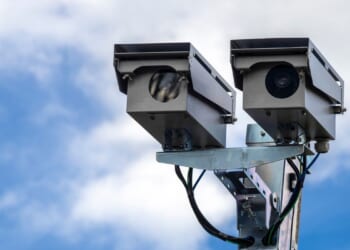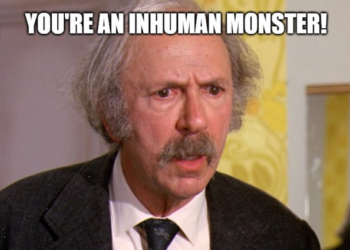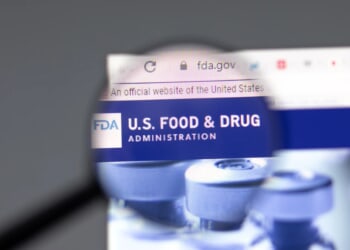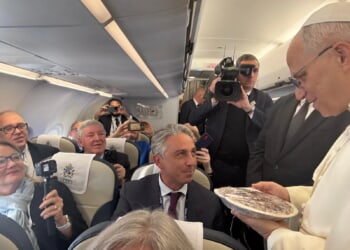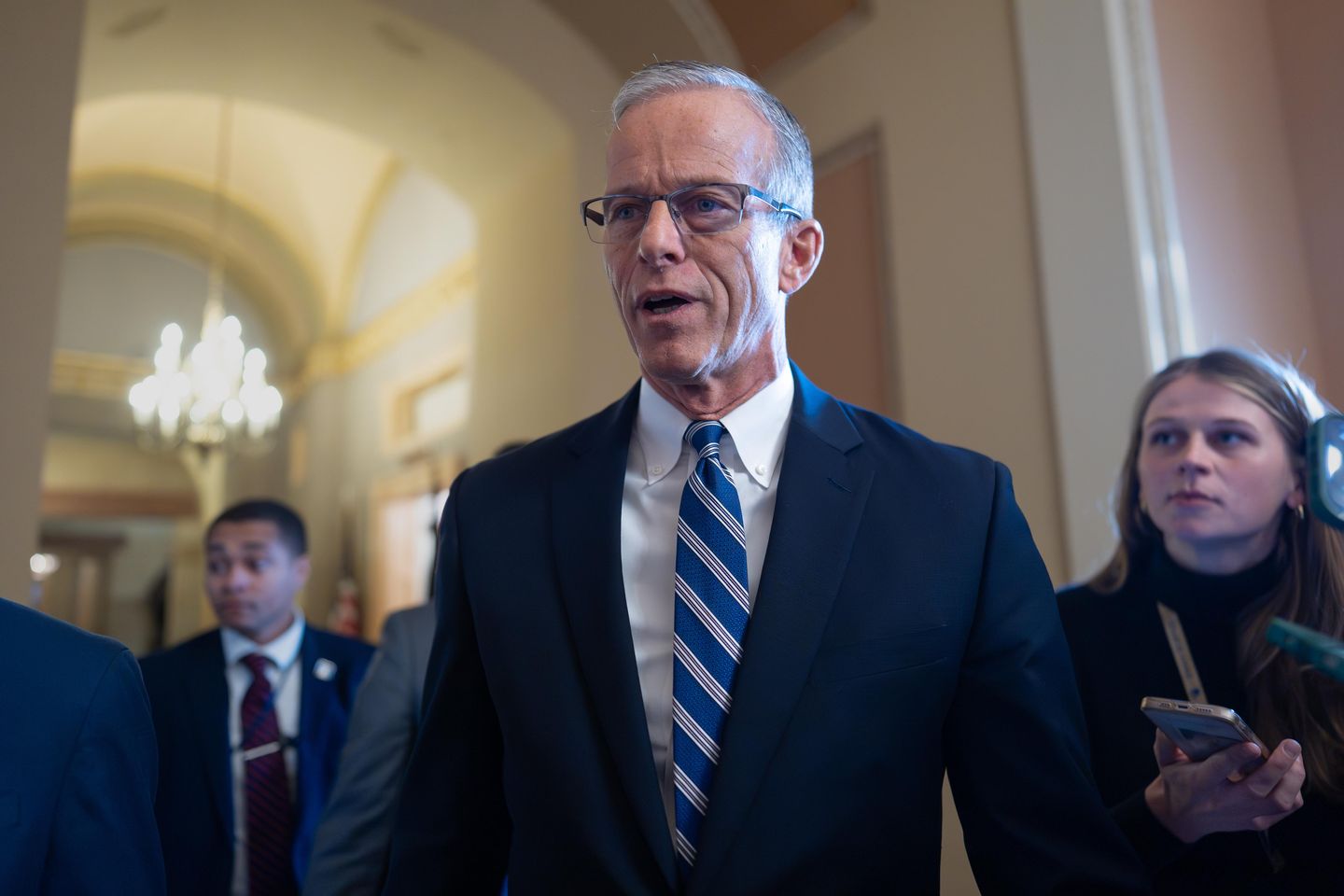
The government shutdown may be on the verge of ending.
Enough Senate Democrats are willing to vote for a new spending package to reopen the government through January in exchange for a vote next month on extending enhanced Obamacare subsidies that are set to expire this year.
Multiple sources familiar with the deal confirmed to The Washington Times that there should be 60 or more votes to clear a filibuster on the new spending package, with a first procedural vote expected Sunday night.
That vote will begin the process of ending the 40-day government shutdown, which broke the record for the longest in history last Wednesday.
It will still take at least a few days to process the deal through the House and Senate, so the government will not be reopened until Tuesday or Wednesday at the earliest.
Democrats have been filibustering a House-passed stopgap bill to fund the government through Nov. 21 in an effort to get Republicans to negotiate on lowering health-care costs.
Republicans have refused to negotiate while the government is shut down but have said they would hold bipartisan talks as soon as Democrats vote to reopen it.
Democrats’ top demand has been to secure an extension of enhanced tax credits on Obamacare premiums, which help lower costs for consumers purchasing insurance on the program’s marketplaces.
Expanded versions of the premium subsidies that Democrats enacted during the COVID-19 pandemic are set to expire this year.
Without the enhancements, which currently cap out-of-pocket costs at 8.5% of household income, consumers are expected to pay more than double, on average, for Obamacare premiums in 2026.
Senate Majority Leader John Thune, South Dakota Republican, has said for weeks that the best he could promise Democrats is a vote on extending the subsidies after the government is reopened, not an outcome.
Democrats held out in hope of a result and on Friday offered to end the shutdown if Republicans added a one-year extension of the enhanced Obamacare premium subsidies to the spending package needed to reopen the government.
Republicans rejected that as a “nonstarter,” saying they would not let Democrats hold government funding “hostage” to secure unrelated policy demands.
They also said the subsidies need to be overhauled so government money isn’t used to pad the profits of insurance companies or pay for plans that cover abortions.
Bipartisan negotiations continued through the weekend and ultimately enough Democrats agreed to vote to reopen the government based on Mr. Thune’s promise to hold a Senate vote on the Obamacare subsidies in December, multiple sources told The Times.
The exact parameters of that December vote are unclear, but it appears bipartisan negotiations would take place after the government is reopened to see whether the two parties can reach an Obamacare deal that can pass both chambers.
Mr. Thune has previously said that he would allow Democrats a vote on whatever Obamacare subsidy extension bill they would like, so if a bipartisan deal does not come together they could still get a vote, but a partisan version would likely fail.
House Speaker Mike Johnson, Louisiana Republican, has said he would not promise a vote in his chamber.
President Trump is calling on Republicans to prevent the subsidies from going directly to the insurance companies and to instead give money to consumers to spend on health care plans of their choice.
Such a solution would be complicated to implement, with Obamacare enrollment already underway, and could mean consumers would have to pay higher premiums up front before they received government assistance.
While the details of the Obamacare deal are far from worked out, Senate negotiators have hammered out most of the details of a new spending package to keep the government open for at least a few months.
The Senate is planning to amend the House-passed stopgap to replace the Nov. 21 deadline with a Jan. 30 date.
The new measure will include three full-year fiscal 2026 spending bills that fund the legislative branch and Departments of Agriculture and Veterans Affairs.
The remaining nine annual spending bills will be temporarily funded through the Jan. 30 stopgap date at fiscal 2025 levels to allow more time for negotiations on full-year bills.
The outstanding include funding for the Departments of Defense, Homeland Security, Labor, Health and Human Services, Education, Energy, Transportation and more.
The Senate could clear the spending package as soon as Sunday night if all 100 senators consent to a time agreement. If anyone objects, it will take a few days to process the bill in the Senate.
In either case, the House then would need to vote on the amended bill and GOP leaders have said they would give members at least 48 hours notice to return to Washington.
That means the earliest the government would reopen is Tuesday or Wednesday.

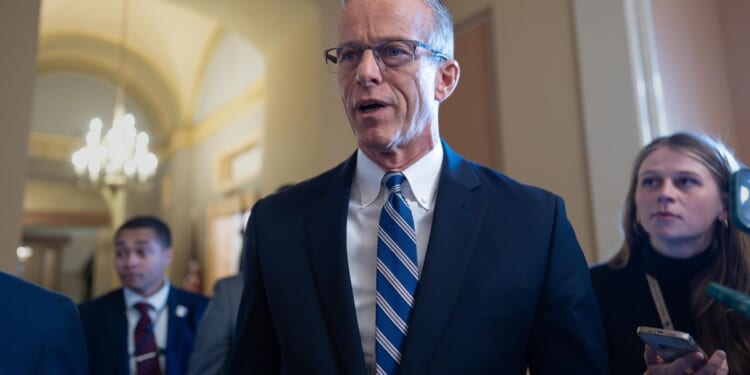
![Scott Bessent Explains The Big Picture Everyone is Missing During the Shutdown [WATCH]](https://www.right2024.com/wp-content/uploads/2025/11/Scott-Bessent-Explains-The-Big-Picture-Everyone-is-Missing-During-350x250.jpg)





![Virginia Democrat Candidate's Leaked Texts Are So Bad Even MSNBC Turns on Him [WATCH]](https://www.right2024.com/wp-content/uploads/2025/10/Virginia-Democrat-Candidates-Leaked-Texts-Are-So-Bad-Even-MSNBC-350x250.jpg)
